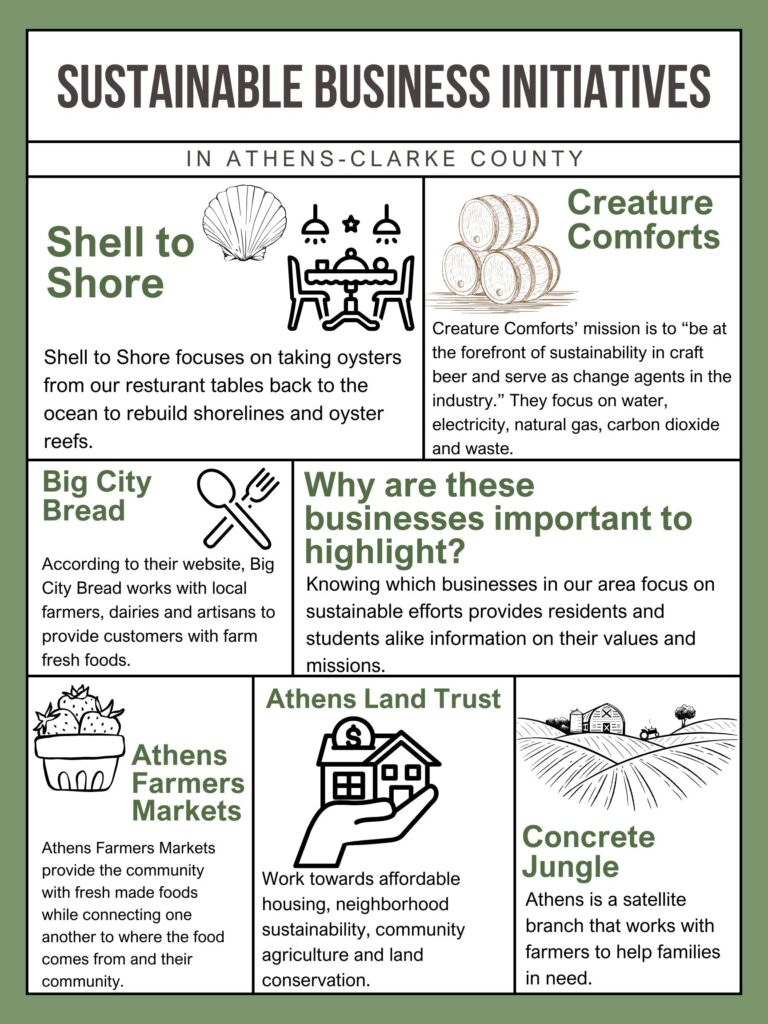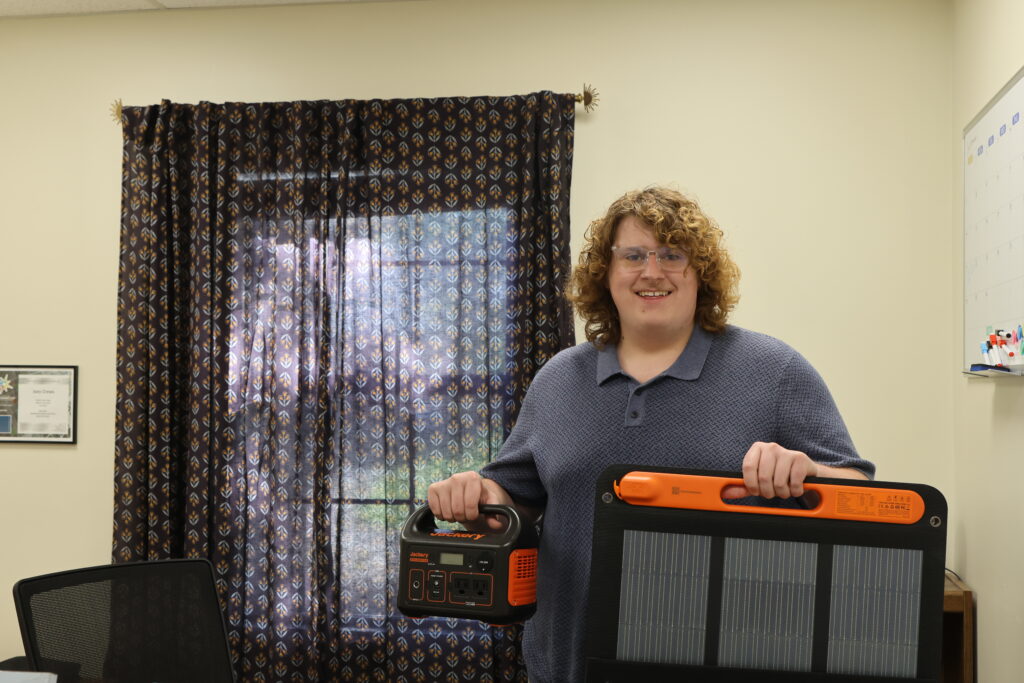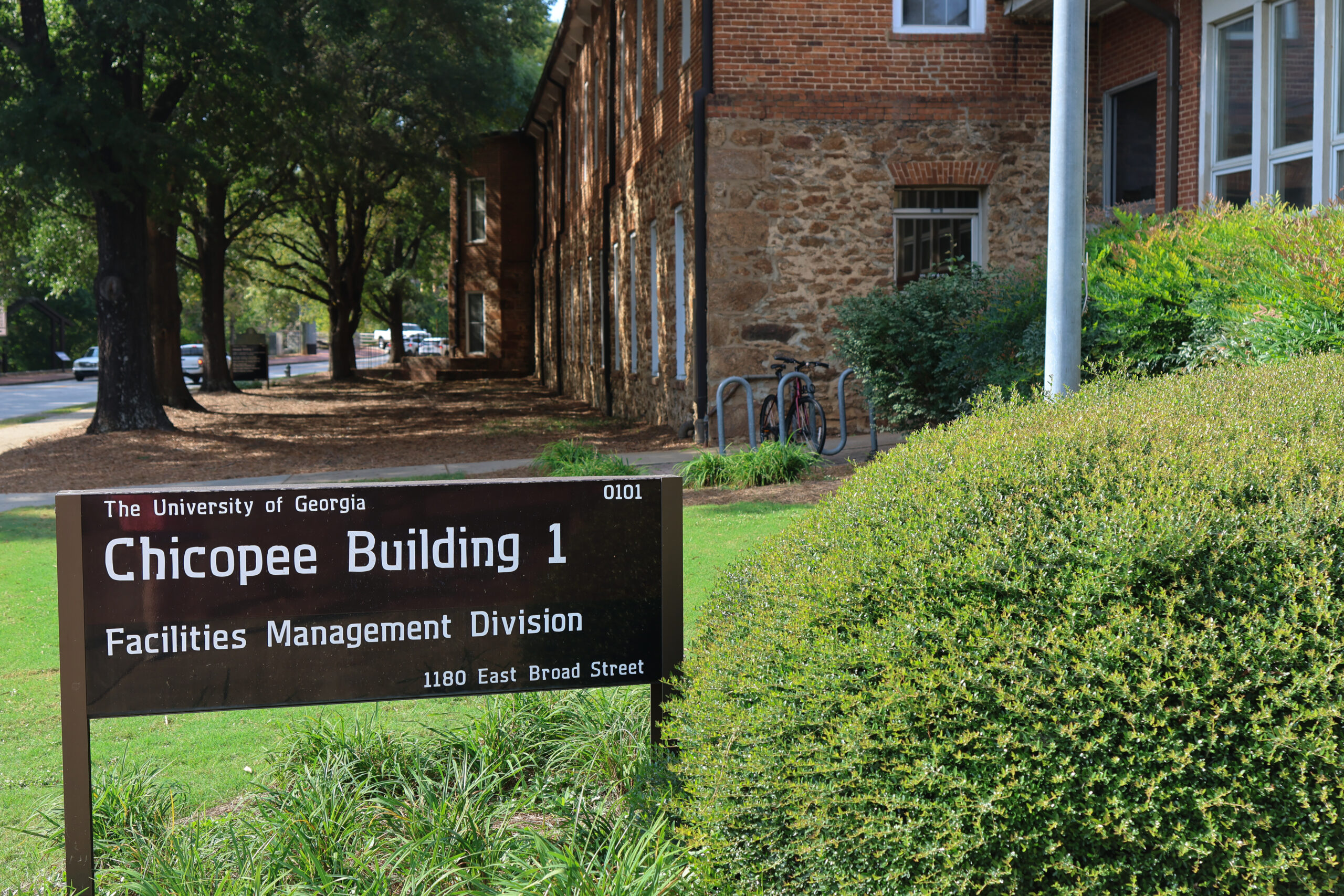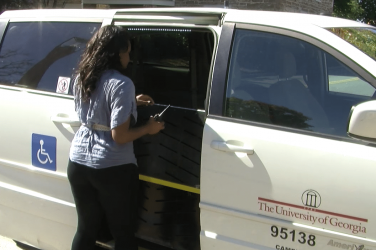While some practice sustainability subconsciously as part of daily life, others directly devote their time to getting involved. This is particularly common among college-age students, and at the University of Georgia, the campus and surrounding community offer a multitude of ways to get involved with the cause.
College campuses that adopt sustainable practices lead to carbon footprint reduction and enhanced biodiversity and conservation efforts, according to EnergyCAP.
One avenue UGA provides is through its Office of Sustainability. The office has a variety of intern positions to apply for, for any student wanting to take part in working toward a more sustainable future.
UGA also offers students the ability to learn about the cause in a classroom setting by pursuing the sustainability certificate through the Office of Sustainability.
Where these are broad ways the college offers for getting involved, some students, like fourth-year Stella Addis, are taking their action a few steps further.
Addis has been the sustainability chairman for her sorority, Tri Delta, since her freshman year. She worked toward many different initiatives in her position, one being her work in getting Tri Delta to become the first house on Milledge Avenue to start composting.
“At the beginning, I would say my main focus was educating members on recycling and kind of creating signage that would go in the house to kind of just enforce what can and can’t be recycled,” Addis said. “And I would go to greet those green meetings.”
These meetings provide spokespeople from sororities and fraternities on campus to discuss what their organizations are doing in terms of sustainability — both on campus and off, as many local Athens businesses have sustainability efforts as well.

Sustainability Post-Grad
Where does being sustainable in college lead students after they graduate, and do they maintain the same practices as before?
Jordan Cutts is a former recycling coordinator for an Athens sustainable business: Shell to Shore.
My time with Shell to Shore totally transformed the way I look at environmental justice and sustainability and community engagement,” Cutts said.
Cutts said Shell to Shore was one of the most defining things she did in undergrad — not just because she learned more about sustainability and environmental justice but because of how she was seen in her role.
Cutts became a Shell to Shore intern through the Office of Sustainability. This led her to grow within the business and eventually become their lead intern.
Joey Crews, the energy program and conservation coordinator for Athens-Clarke County’s Sustainability Department, said this involvement in college can help young people remain sustainable later in everyday life.
“It’s more of understanding the issue so you can communicate them and understanding how these things fit into the bigger picture,” Crews said. “Also understanding that people have limits and winning an argument is not the goal. It’s getting the best result out of everybody around you.”
Crews promotes sustainability day-to-day through vermicomposting. This utilizes worms to break down organic materials and buying aluminum instead of plastic.

UGA and Athens’ sustainability resources allow students to learn about the cause and carry that knowledge with them once they graduate.
Whether it’s unconscious or conscious sustainable actions, going green doesn’t have to end at the arch.
Emma Peterson is a fourth-year student majoring in journalism in the Grady College of Journalism and Mass Communication at the University of Georgia.









Show Comments (0)